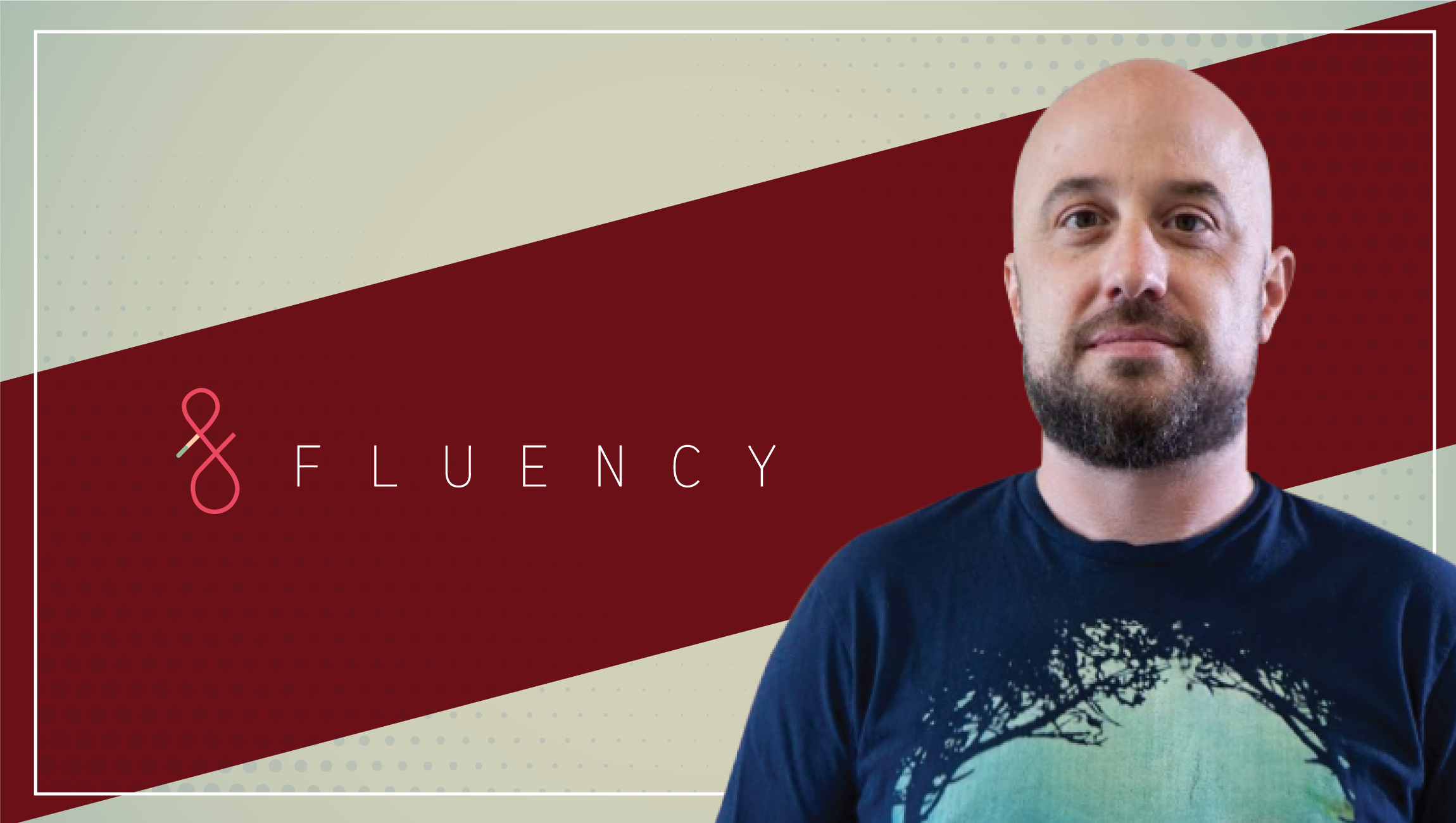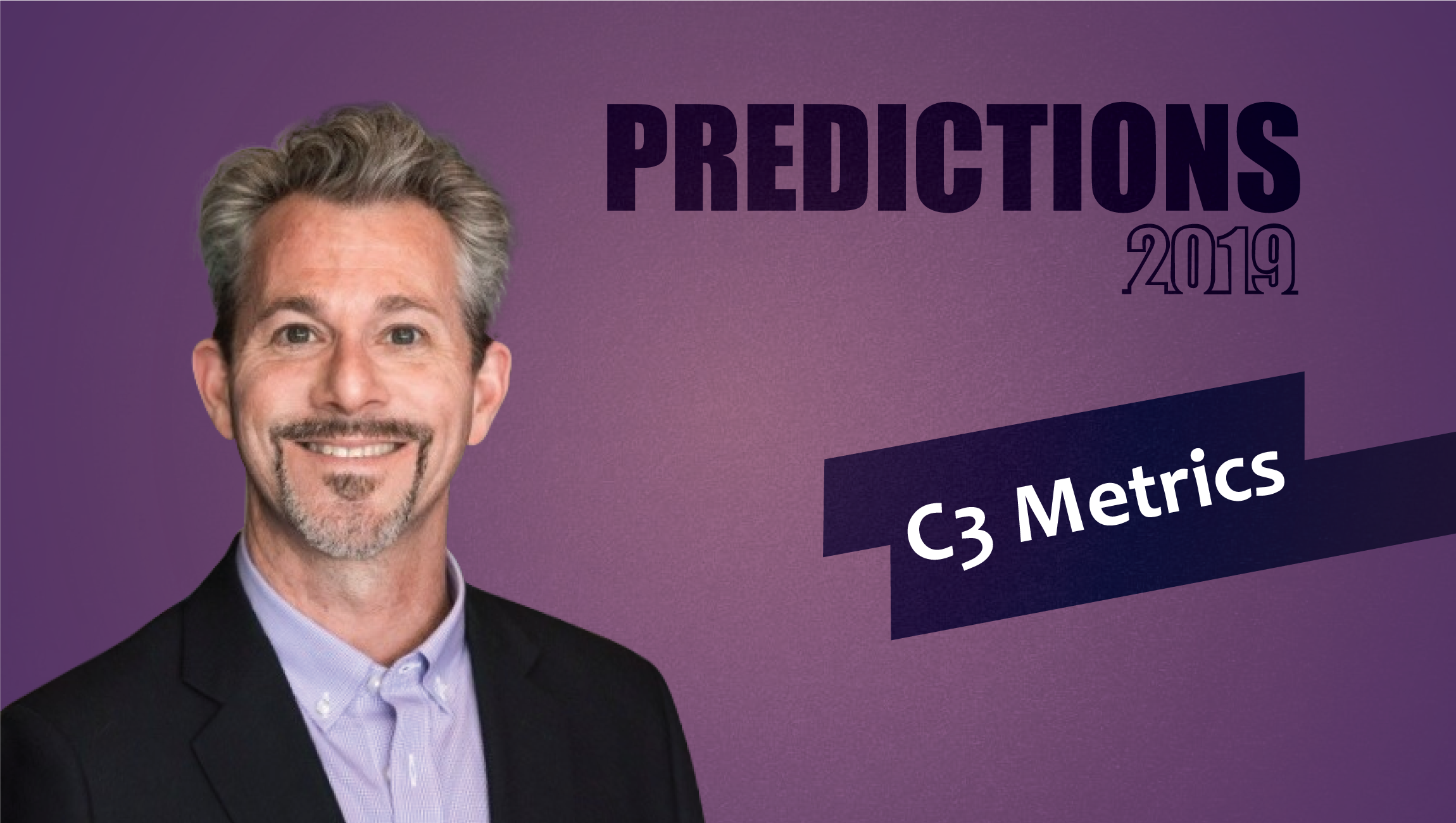Tell us about your role and journey into technology. What galvanized you to start Fluency?
My first computer was the Commodore 64. I was hooked instantly. There seemed to be unlimited potential in front of me that I couldn’t even imagine and it sparked my interest in technology. I started college as an Environmental Engineer but finished with a degree in Engineering Management and focused on programming, marketing, and business management. I loved front-end web development as it brought the concepts forward and enabled interaction. Upon graduating, I stepped into roles that brought business ideas to life.
In 1998, I took the leap and became an entrepreneur with four others and we started a digital marketing services company for the automotive industry that would be acquired for more than $1.1B 16 years later. We knew we were changing the industry, but I didn’t realize how pioneering we were at the time — we essentially defined and developed the standard for what the user experience should be when shopping for a vehicle from a dealership.
We did that by writing and supporting our own software stack, and grew our team from 5 people to more than 1,000, with a >70% market share for new car dealers in the US.
After we were acquired, I decided to exit the company and tap into what was really driving me at the core: the art of building a company. I learned that some leaders are well suited to complex integrations that follow mergers and acquisitions; I found that I am best suited for developing and getting an innovative idea that can deliver meaningful results off the ground and into the marketplace and scaling it.
In November 2017, four of us founded Fluency, a business-to-business digital advertising platform provider. Our clients are industry-focused organizations and/or digital marketing companies. They manage large digital media portfolios; typically tens of millions of dollars across thousands of accounts. Our software is unique in the space to empower our clients to manage and scale their business profitably.
What differentiates Fluency from other B2B AdTech platforms?
There are several differentiators, but if I had to sum it up in one word, that word would be data. We know how to use it better than anyone else. Collectively, our founding team has a distinguished set of skills that solves the problem of advertising at scale with accuracy, efficiency, and efficacy. We built our platform to be able to take data in any format and turn that into advertising at scale. We saw this gap in the market, and despite the onslaught of agencies and new software, it was only widening, making it more challenging and costly for clients. It is our belief that there is an art to delivering unique creative at scale in this space, and we are approaching it from that perspective.
To show how we differ from others in the market, let’s look at a scenario. Say you are an agency managing a digital advertising portfolio of $50M USD. Your goals are to improve your thin margins, get consistency in performance, and roll out campaigns and new clients faster. You also want to better use the millions of points of data in your system. For almost every organization out there, there are no real solutions that don’t involve massive R&D, setup fees, and many months of laborious task-oriented work. With Fluency, we focus on delivering real material value in as little as 4 weeks without the need to scale your teams. We like to tell our clients that we will bend your mind around how you will look at advertising management, and then deliver on it.
How do you prepare for the highly disruptive B2B programmatic advertising ecosystem?
We have prepared by spending the last 20 years becoming experts in the execution of business, technology, and advertising. If we didn’t have our collective wealth of experience, it would be nearly impossible to even see the market opportunity, let alone execute on it. Digital advertising will continue to change and evolve. If you are going to be in this space, you need to innovate and compete because tomorrow there will be something new and the deck will get reshuffled.
What is the current state of Digital Commerce in the B2B advertising industry?
There might be 10,000 different AdTech companies out there, but only a few handful of real enterprise providers out there. What I hear most from people seeking new solutions is that the space is full of unfulfilled promises.
At the enterprise level, many companies are ‘established’ and have been focused on the corporate goals of market share (total budget managed and client count) and company profitability. Innovation has taken the back seat. Support is lacking and new features are slow to be implemented. Some are trying to solve the innovation problem through continual M&A activity. Some are better at it than others, but no customer wants to hear the that integration is more important than the latest adwords update that was promised months ago.
How do you see the European Programmatic industry growing compared to American and ANZ markets?
America is still the wild west in this regard. Europe tapped the brakes and did a great reality check. Now, the rest of the world is starting to question their own ethical standards and rights to privacy. I see this as continually evolving. But that does not mean the innovation and growth in digital advertising will slow down. It is really just a change in focus. I see really new and improved levels of automation that don’t have to dig further down the PII path becoming more available.
Which Marketing and Sales Automation tools and technologies do you currently use?
I tell every start-up I work with to use HubSpot.
What are the core tenets of your business development model? How does Fluency add value to digital transformation journeys for businesses?
Good question. Our core tenets are transparency and enablement. Our clients’ data is theirs just as their strategy is theirs. With Fluency, you aren’t getting our way of doing things. You are getting a powerful solution for your company to implement the best practices of digital advertising. We are not a black box either. You can clearly see how bidding ad creation works. Fluency is the ultimate workflow automation platform. Our goal is to enable advertising management like nothing you’ve seen before.
How often do you measure the performance of your marketing analytics and sales reporting?
Fluency takes in data from the channels continuously. This data is used to make real-time decisions immediately. All of this is rolled up into the workflow tool on the dashboard that visualizes data by client segments or entire portfolios. Reporting on advertising is great, but the real power of understanding that reporting is the ability to digest it at scale and create actions from it. Our tool can do a ton of work automatically, but then it queues up items for analysts to review and make changes based on importance. Long gone are the days of people trying to find the problems and looking at one account at a time. That is impossible to do at scale.
What are your predictions on the most impactful disruptions in digital advertising operations for 2018-2020?
There will be two groups: One that pushes the promise of the next thing and another that delivers value. Industry-focused agencies are going to grow rapidly and take market share from generalists, and more and more small business with small budgets will start utilizing digital advertising.
What startups in the technology industry are you watching keenly right now?
Ahem…. Fluency, of course!
Kidding aside, there are cool companies doing stuff in data science and audience. Faraday.io is an interesting company in that space and I personally went so far as to become an investor. Real-time TV advertising is growing and we are watching this space and how it is evolving.
Could you tell us about an outstanding digital campaign?
Since Fluency is a platform, we implement our clients’ campaigns and we use our platform to unlock dollars trying to get into digital. All over the world, there are manufacturers (OEMs – Original Equipment Manufacturers) that are building products and they rely on distribution or store/dealer networks to sell their product. These OEMs have marketing dollars in the form of co-op (or one of the other 20 flavors) that they give their distributors/dealers/stores to co-promote. They ALL want more of those dollars spent in digital. A lot of those dollars historically have been under optimized in radio, print, golf hole sponsorship, etc….
Say an OEM has 25,000 stores, so rolling out a digital campaign was nearly impossible to manage as it would typically take 6 months to launch a 60-day campaign. The return historically just hasn’t been there. Now, with Fluency, all 25,000 stores and their campaigns are launched tomorrow and all those dollars are now in digital and tracked. We know of no one that can execute like this.
How do you prepare for an AI-centric world as a business leader?
AI world is here. As a business leader, I think about how AI can empower our customers to do more. No one wants to be replaced, but if we are enabling organizations to function at a level where they feel empowered and AI can get rid of the mundane work, then it is a true win.
How do you inspire your people to work with technology?
Let them use it… and explore how to use it different ways
One word that best describes how you work.
Calculated.
What apps/software/tools can’t you live without?
I am actually of the mindset that I can live without all of it but the core of what I find most useful is the cell phone itself, Google Calendar, texting, find my friends (kids) and Waze are truly the core.
What’s your smartest work-related shortcut or productivity hack?
Ten slides max. If you can’t keep it all in less than a 30-minute meeting, then something is wrong.
What are you currently reading?
Nearly all my information consumption is digital these days. With a newborn, a partner back in school full-time and a start-up, my time is limited and, unfortunately, my reading doesn’t extend much beyond news and email.
What’s the best advice you’ve ever received?
Assuming we are talking professional advice?!?! Then it isn’t any one “best” thing, but here are the few that are always top of mind…
1: Hire smart. They have to not only be the right fit but also have the ability to succeed in the position.
2: Have a plan? Follow it, adjust it when needed, but have a plan.
3: You will not end up in 5 years exactly where you want to be, so accept that now; it is a journey.
4: There are a lot of great business ideas in the world, but only a small percentage of them get executed and there are a million reasons every idea will not work.
5: Someone’s opinion is just that, an opinion.
Something you do better than others – the secret of your success?
For me, the art of business is something I believe I do well and I don’t see a lot of leaders even understanding that it isn’t all about the left brain. It starts with your steam, how do they feel when they walk in the door? If they don’t feel good about coming to work on Monday morning and crushing it, then you need to focus on that.
Tag the one person (or more) in the industry whose answers to these questions you would love to read:
Rachel Bulla, Andy MacLeay and Rachel Richards.
Thank you, Mike! That was fun and hope to see you back on MarTech Series soon.
I have worked in the tech industry my entire career and love being an entrepreneur and the challenge of a startup. In 1998, 5 of us co-founded Dealer.com, a digital marketing technology company for the automotive industry. I served as the COO for 16 years and grew the company to over 7,000 clients, 850 employees, and revenues over $230mm. We charted new territory for the auto industry in digital advertising. We successfully sold the company for $1.1 Billion in 2014 and, to date, is one of the biggest success stories of entrepreneurialism in the state of Vermont.
With decades of experience in software engineering, digital advertising, running and scaling business, I, along with 3 others, detected an unmet need among industry-focused agencies in the digital advertising space, and in 2017, we launched Fluency, an enterprise-level technology platform that automates critical, necessary, but repetitive and time-consuming tasks associated with digital advertising management.

Fluency is a business-to-business digital advertising platform provider.
Our clients are industry-focused digital marketing companies. They manage large digital media portfolios; typically tens of millions of dollars across thousands of accounts.
Fluency provides an enterprise-level technology platform that automates critical, necessary, but repetitive and time-consuming tasks associated with digital advertising management. Fluency’s platform allows users to operate with the highest level of efficiency, enabling them to focus on strategic business objectives that deliver cost-effective, optimized advertising campaigns. This results in easily scalable advertising strategies that increase competitive advantage and optimize market share growth opportunities.
The MTS Martech Interview Series is a fun Q&A style chat which we really enjoy doing with martech leaders. With inspiration from Lifehacker’s How I work interviews, the MarTech Series Interviews follows a two part format On Marketing Technology, and This Is How I Work. The format was chosen because when we decided to start an interview series with the biggest and brightest minds in martech – we wanted to get insight into two areas … one – their ideas on marketing tech and two – insights into the philosophy and methods that make these leaders tick.











